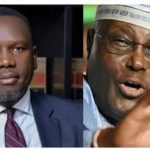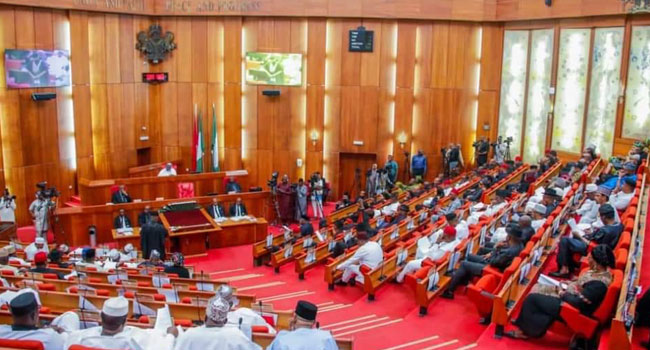There are indications that issues bordering on the 2025 budget Appropriation Bill and approval of the tax reform bills, already pending in the Senate, will top the agenda of the apex legislative Assembly, as it resumes plenary on Tuesday.
The Senate and the House of Representatives embarked on a three-month recess on Wednesday, 30th October 2024, to enable some of the Standing Committees to carry out oversights on some of the ministries, agencies and departments (MDAs) of government.
The seeming unprecedented adjournment was done in the heat of controversy surrounding the four different tax reform bills separately forwarded to the lawmakers for consideration and approval by President Bola Tinubu.
The Senate had on Tuesday, October 29, 2024, listed the tax reform bills on its Order Paper for first reading but stood down along with other items for screening and confirmation of the recently appointed seven ministerial nominees by President Tinubu.
The tax reform bills were, however, not listed on the Order Paper the following day (Wednesday, 30th October 2024) for any legislative action before embarking on the three weeks recess.
Coincidentally, on the same day, both chambers embarked on the hurried recess, the National Economic Council (NEC) headed by Vice President Kashim Shettima, resolved that the tax reform bills should be withdrawn from the National Assembly by President Tinubu for wider consultation.
However, President Tinubu on Thursday, 31st October 2024, responded to the request that the bills should be allowed to pass through the required legislative processes at both chambers, which according to him, would give concerned Nigerians the opportunity to get details on the bills and make their inputs, particularly at the stage of Public hearing.
For the 2025 budget, the Presidency through the Minister of Budget and Economic Planning, Senator Atiku Bagudu, announced last week Wednesday that an estimate proposal of N47.9 trillion had been approved by the Federal Executive Council (FEC) as contained in 2025 – 2027 Mid- Term Expenditure Frame Work and Fiscal Strategy Paper (FSP), that would be sent to National Assembly for consideration and passage.
The Minister told the State House Correspondents that documents on 2025 – 2027 MTEF and FSP, would get to both chambers of the National Assembly before resumption this week Tuesday.
Therefore, the first agenda for both the Senate and the House of Representatives on resumption Tuesday this week would be reading of communication from President Bola Tinubu on the 2025 – 2027 MTEF /FSP, consideration and approval of which would set the stage for the presentation of the 2025 budget.
The proposed N47.9 trillion budget as explained by the Presidency last week is predicated on a Crude Oil Benchmark of $75 per barrel, daily Oil Production of 2.06 million barrels, an Exchange Rate of N1,400 to $1 and a targeted GDP Growth rate of 6.4%.
According to the Minister’s discourse, the seeming contentious legislation to be handled by the National Assembly on resumption is the tax reform bills, which are still being protested against by some Nigerians.
The reform bills as explained to the Senate Committee on Finance last month by the Chairman of Federal Inland Revenue Service (FIRS), Zacch Adedeji are “the Nigeria Tax Bill 2024, which is expected to provide the fiscal framework for taxation in the country, and the Tax Administration Bill, which will provide a clear and concise legal framework for all taxes in the country and reduce disputes.
Others are the Nigeria Revenue Service Establishment Bill, which will repeal the Federal Inland Revenue Service Act and establish the Nigeria Revenue Service, and the Joint Revenue Board Establishment Bill, which will create a tax tribunal and a tax ombudsman.”
The FIRS boss at the interface told members of the Committee that the bills are not in any way, introducing any new form of taxes by harmonising the existing ones in line with global practices.








